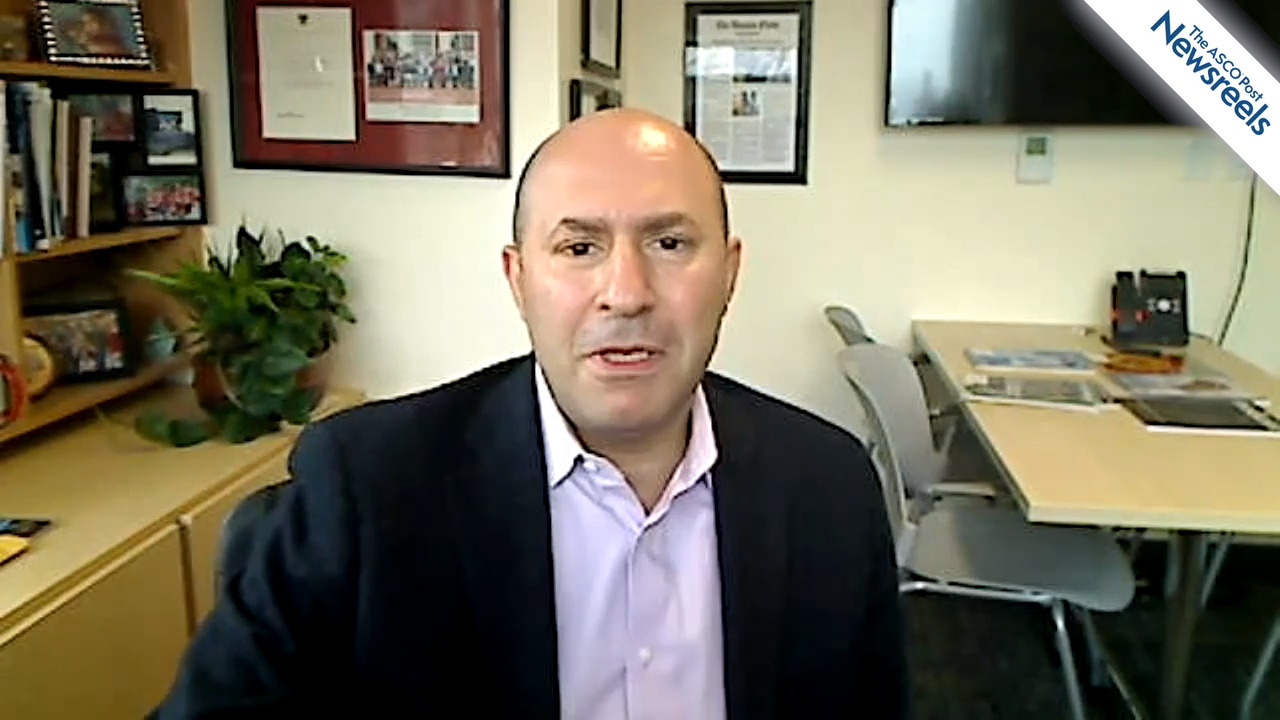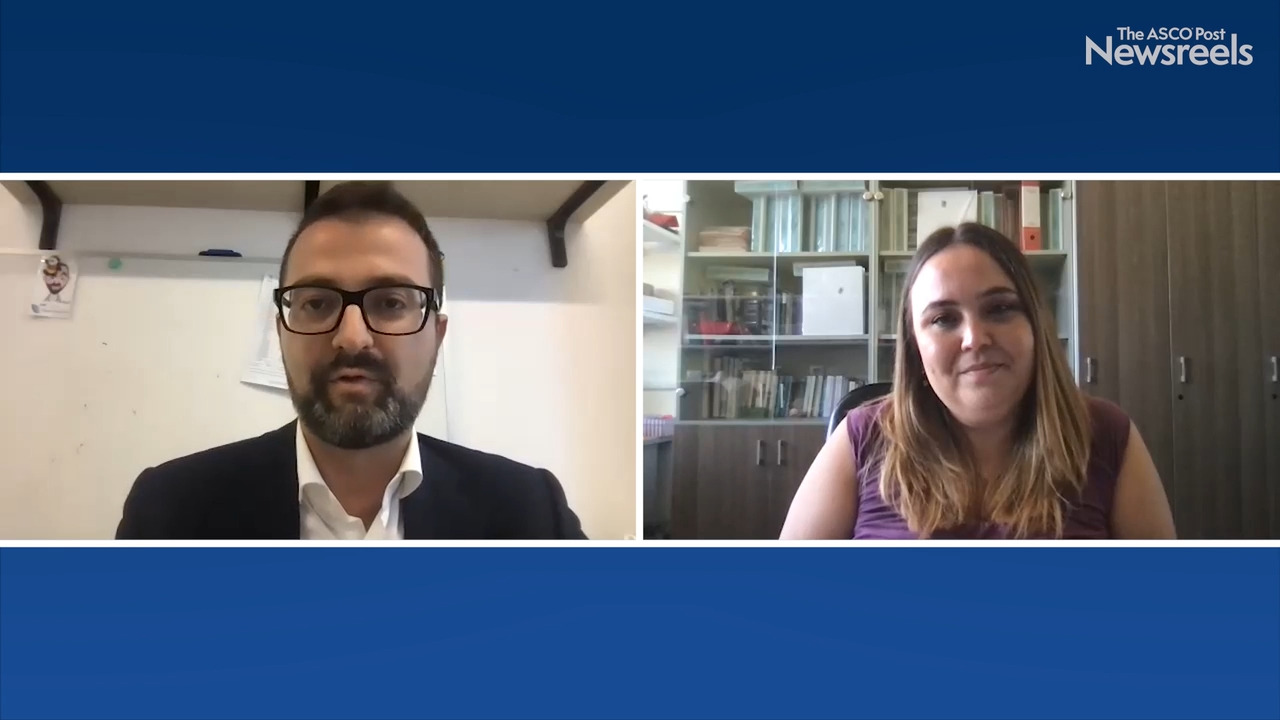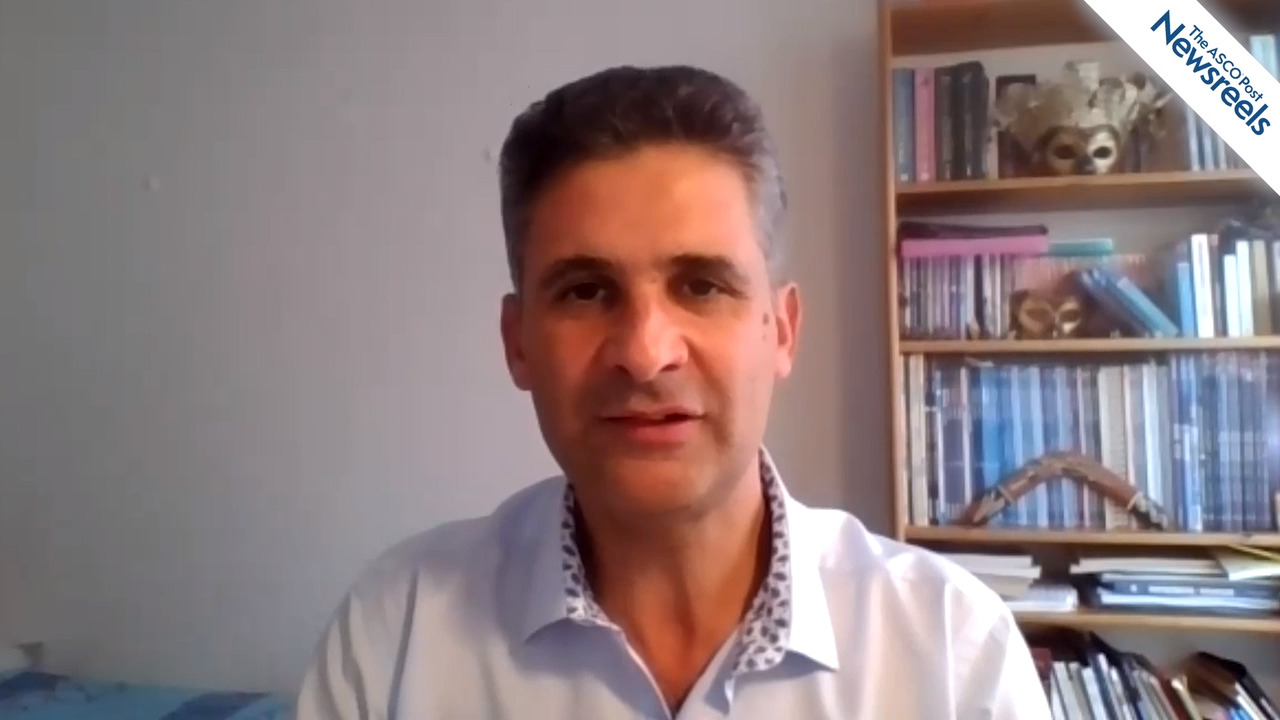Thomas Powles, MD, PhD, on Urothelial Carcinoma: Erdafitinib, Cetrelimab, and FGFR Alterations
ESMO Congress 2021
Thomas Powles, MD, PhD, of Queen Mary University of London, discusses phase II results from the NORSE study, which showed that the kinase inhibitor erdafitinib plus the monoclonal antibody cetrelimab produced meaningful responses in cisplatin-ineligible patients with first-line metastatic or locally advanced urothelial carcinoma and fibroblast growth factor receptor (FGFR) alterations (Abstract LBA27).
The ASCO Post Staff
Toni K. Choueiri, MD, of Dana-Farber Cancer Institute, discusses patient-reported outcomes for quality of life in the KEYNOTE-564 study, which previously met its primary endpoint of disease-free survival with adjuvant pembrolizumab vs placebo following surgery for renal cell carcinoma (Abstract 653O).
The ASCO Post Staff
Filippo Pietrantonio, MD, and Federica Morano, MD, both of the Istituto Nazionale dei Tumori, discuss results from the MAYA trial, which provided proof of concept that temozolomide-induced hypermutation may be exploited to achieve durable responses to low-dose ipilimumab plus nivolumab in patients with microsatellite stable metastatic colorectal cancer (Abstract 383O).
The ASCO Post Staff
Robin Cornelissen, MD, PhD, of Erasmus University in Rotterdam, discusses phase II findings from the ZENITH20-4 study, which explored the question of whether poziotinib could benefit patients whose newly diagnosed non–small cell lung cancer harbors EGFR and HER2 exon 20 mutations. Potentially, this novel tyrosine kinase inhibitor may fill an unmet medical need (Abstract LBA46).
The ASCO Post Staff
Jenny F. Seligmann, MBChB, PhD, of the University of Leeds, discusses phase II findings that suggest adavosertib improved progression-free survival, compared with active monitoring, by inhibiting the WEE1 kinase in patients with RAS- and TP53-mutant metastatic colorectal cancer. In the trial, adavosertib’s activity tended to be even greater in left-sided tumors (Abstract 382O).
The ASCO Post Staff
Karim Fizazi, MD, PhD, of the Institut Gustave Roussy, discusses phase III results from the PEACE-1 study, which showed that androgen-deprivation therapy plus docetaxel and abiraterone provided 2.5 years of additional time without radiographic disease progression or death and 1.5 additional years of survival in men with de novo high-volume metastatic castration-sensitive prostate cancer (Abstract LBA5).





